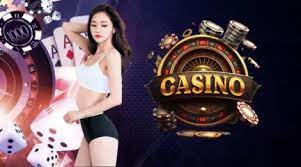
The Joker card, often considered a wild card in many card games, has a rich history and significance that extends beyond its playful nature. With its vibrant colors and whimsical design, the Joker embodies unpredictability and jokercard. This article explores the origins, meanings, and uses of the Joker card in various contexts.
Origins of the Joker Card
The Joker card originated in the United States during the mid-19th century, primarily as part of the game of Euchre. The card was introduced as a trump card to enhance gameplay, allowing players to take advantage of its wild nature. The design of the Joker has evolved over time, typically depicting a court jester or clown, symbolizing humor and folly.
The Joker’s playful and chaotic persona reflects its role in card games, where it often disrupts standard play. While the Joker was initially introduced as a useful addition to the deck, it quickly gained popularity and found its place in various games beyond Euchre.
Symbolism and Meaning
The Joker card holds different meanings depending on the context in which it is used:
- Chaos and Unpredictability: The Joker is synonymous with chaos. In many games, it can represent any card, adding an element of surprise and strategy. This unpredictability makes it a favorite among players looking to shake up the status quo.
- Duality: The Joker embodies duality, representing both the trickster and the wise sage. It can disrupt established norms and introduce new dynamics, reflecting the complexities of life and human behavior.
- Freedom and Liberation: In some interpretations, the Joker symbolizes freedom and liberation from societal constraints. It encourages players to embrace their creativity and think outside the box.
Uses of the Joker Card in Games
The Joker card is utilized in various card games, often with unique rules:
- Poker: In some variations of poker, Jokers can act as wild cards, substituting for any card to complete a hand. This flexibility can lead to exciting twists and unexpected victories.
- Rummy: In Rummy, Jokers can be used as wild cards, allowing players to form melds more easily. This feature adds an extra layer of strategy as players decide how to utilize their Jokers effectively.
- Uno: The Joker is not a standard card in Uno, but the game includes wild cards that function similarly. These cards allow players to change the color of play, embodying the same spirit of unpredictability.
- Tarot: In Tarot, the Joker is often represented by The Fool card. It signifies new beginnings, spontaneity, and the journey ahead. The Fool embodies a carefree spirit, reminding us to embrace life’s adventures.
Cultural Impact
Beyond card games, the Joker has made a significant impact on popular culture. The character has been depicted in various forms of media, from comic books to movies, most notably as the iconic villain in the Batman franchise. The Joker’s portrayal often reflects themes of chaos, insanity, and the darker sides of human nature, further cementing its status as a symbol of unpredictability.
In literature and art, the Joker can represent the absurdity of life and the complexities of the human experience. The character challenges societal norms and encourages audiences to question their understanding of reality.
Conclusion
The Joker card is much more than just a colorful addition to a deck of cards. Its origins, symbolism, and versatility in games make it a fascinating subject of study. Whether as a wild card in poker or a representation of chaos in popular culture, the Joker serves as a reminder of the unpredictability of life and the importance of embracing spontaneity. As players shuffle their decks and deal their hands, the Joker stands ready to inject a dose of excitement and surprise into the game.